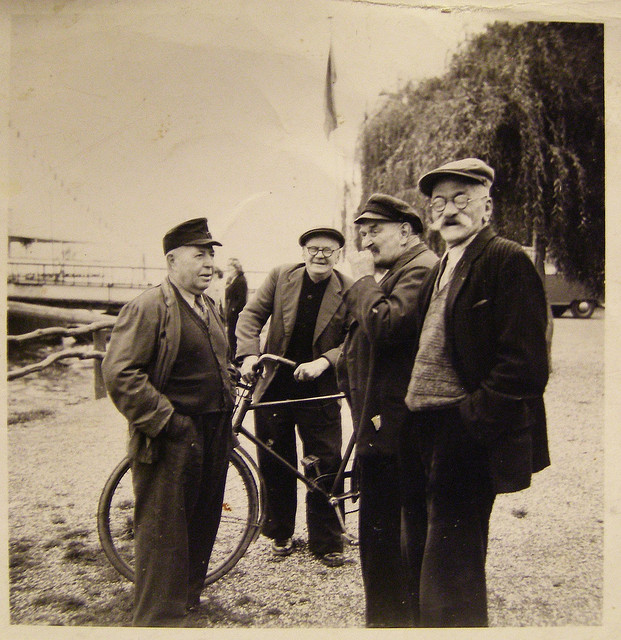The Purpose of God’s Mercy
Jonah did not want to go to Nineveh because the Assyrians were wicked. They persecuted the Israelites on a regular basis. They had a godless mindset that included a reputation for torturing the innocent, including children. Jonah was tired of seeing his people suffer. Even after being swallowed by the big fish and having a change of heart about obeying God’s command to preach, he was hoping Nineveh would be destroyed. When God responded mercifully to their repentance, Jonah was upset and said, “…Ah, Lord, was not this what I said when I was still in my country? Therefore I fled previously to Tarshish; for I know that You are a gracious and merciful God, slow to anger and abundant in lovingkindness, One who relents from doing harm” (Jonah 4:2).
Jonah knew something that every person who learns about God eventually understands. It is in God’s loving nature to be merciful. And aren’t we thankful? When we stand before our Creator in judgment we will desire mercy and grace and not what we deserve. The thoughts of Lamentations 3:22-24 are so beautiful and encouraging to our sinful souls, “Through the Lord’s mercies we are not consumed, because His compassions fail not. They are new every morning; Great is Your faithfulness. ‘The LORD is my portion,’ says my soul, ‘Therefore I hope in Him!’” Each day we live is another example of the patience and mercy of God. We account that His longsuffering is our salvation (2 Pet. 3:15).
But while we are in appreciation of the grace of God, let us not forget that mercy has been extended for a reason. It has been given to us because God loves us too much to leave us in a state of sin. He desires our holiness (1 Pet. 1:15-16). God’s Son visited earth to create abundant life (John 10:10). He commands all men everywhere to repent (Acts 17:30). He wants us not to be conformed to the world but rather transformed by the renewing of our minds (Rom. 12:1-2). Jesus, “gave Himself for us, that He might redeem us from every lawless deed and purify for Himself His own special people, zealous for good works” (Titus 2:14).
God attached a purpose to His abundant mercy. Mercy was meant for more than just dealing with our sin problem. It has been given so we can have an opportunity, motivated by the power of perfect love, to be like Jesus. Saul of Tarsus remains the perfect example of the purpose of God’s mercy. He said so himself: “And I thank Christ Jesus our Lord who has enabled me, because He counted me faithful, putting me into the ministry, although I was formerly a blasphemer, a persecutor, and an insolent man; but I obtained mercy…And the grace of our Lord was exceedingly abundant, with faith and love which are in Christ Jesus…However, for this reason I obtained mercy, that in me first Jesus Christ might show all longsuffering, as a pattern to those who are going to believe on Him for everlasting life” (1 Timothy 1:12-13a, 14, 16).
Paul realized that God had chosen to bless his life with grace in order to shape him into a vessel of honor and service to the church. He knew that if he, in spite of his terrible past, was chosen by God as qualified to save the lost, then any person could become a fruitful worker for Christ. How sad that Christians leave mercy and grace hanging with their dripping baptismal garments! How tragic that so many view mercy and grace as completely disassociated with the resulting works of faith! Grace came that we should no longer be enslaved by sin (Romans 6). Mercy came that we might be motivated to be merciful to others and choose a life a sacrifice for our Savior who sacrificed for us!
If you are a Christian, you ought to know better than anyone about the internal impacts of mercy and grace, “If indeed you have tasted that the Lord is gracious” (1 Peter 2:3). The results should be love for God and men, and forgiveness, and dedication, and joyful labor in the kingdom of God.
It will be sad indeed in judgment for the one who never chooses to respond to the grace of God in obedience to the gospel. But just as sad on that day will be the state of the Christian who was never so changed by God’s mercy so as to allow that same mercy through the power of a changed life to change the lives of others.
“…and God’s mercy has come to you so that they, too, will share in God’s mercy.” – Romans 11:31
 To Receive Every Post via Email for Free, Click Here
To Receive Every Post via Email for Free, Click Here
Photo background credit: Roger Kirby on FreeImages



